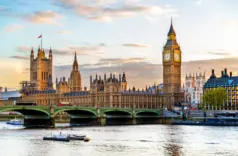
As the 2024 General Election approaches in the UK, the future of vaping regulations and policies is a topic of significant interest among vapers, public health experts, and industry stakeholders. The outcome of the election could shape the landscape for vaping, impacting everything from regulation and taxation to public health campaigns and industry growth. Here’s a look at the potential implications for vapers in the UK.
Current Vaping Landscape in the UK
The UK has been relatively progressive in its approach to vaping, recognizing e-cigarettes as effective tools for smoking cessation. Public Health England (PHE) has consistently supported vaping as a less harmful alternative to smoking traditional cigarettes. However, the political climate and regulatory environment is changing. Concerns have arisen over the number of children and teens that are now vaping. Those concerns recently led to the introduction of the Disposable Electronic Cigarettes (Prohibition of Sale) Bill and the Tobacco and Vapes Bill. New taxes on vaping have also been proposed.
The Disposable Electronic Cigarettes (Prohibition of Sale) Bill
A private members bill, this proposed legislation would see disposable vapes banned in the UK. The government had said the ban would come into force on 1 April 2025. But the passage of the bill through parliament has now been suspended until after the general election. The ban is supported by both the Conservative Party and the Labour Party and so is likely to happen at some point, whoever wins the election. The question is when?
The Tobacco and Vapes Bill
This legislation is of greater concern to the vaping community given that it would impact almost every vaper not to mention thousands of vaping related businesses. A ban on disposables would mean that users could simply switch to refillable, rechargeable devices. But The Tobacco and Vapes Bill would likely lead to restrictions that could not be circumvented, at least legally.
The bill’s aim is to “reduce the appeal and availability of vaping products” by giving ministers the power to regulate:
·E-Liquid flavours
·The packaging of vaping products
·Point of sales displays
But the bill did not become law before Parliament was prorogued in preparation for the general election. In addition, it is worth noting that the legislation would have given powers to ministers but it is impossible to know if they would use them and if they did, precisely what they would choose to do.
Unfortunately, the bill is likely to be resurrected after the election as it was supported by both main parties. Changes to the bill could be made, though. This bill was rushed along, probably with the intention of providing the current government with vote-winning kudos before the election. The indecent haste left little time for debate or sensible consideration of the consequences of the proposed legislation. The government has admitted that it didn’t even read the responses to its own consultation on the bill and instead used AI to analyse keywords!
Perhaps with the urgency of passing the bill now a thing of the past, the proposed legisaltion will be subjected to greater scrutiny. There will now be time for those who oppose the bill to be heard and the reasons for their objections to be fully explored.
It isn’t possible to know the extent to which vaping legislation is a priority for the Labour Party which is likely to win the election. With the economy, the NHS and the cost of living crisis most likely to be prioritised for attention, new vaping laws could be delayed for some time. Many in the vaping industry believe that any new bill will feature somewhat watered down versions of the current proposals. But this isn’t guaranteed.
New tax proposals
In the March 2024 budget, the government announced that it would introduce new taxes on vaping products. These would take effect from October 2026. It isn’t yet clear whether the taxes will now be introduced as planned.
As it stands, vaping products are subject to value added tax (VAT) but not to a separate levy (duty). According to the government’s proposals, the proposed amount of duty would depend on how much nicotine is in an e-liquid:
£1 per 10ml for nicotine-free e-liquids
£2 per 10ml for e-liquids that contain 0.1-10.9mg nicotine
£3 per 10ml for e-liquids that contain 11mg or more
E-liquids would become considerably more expensive. Duties on tobacco cigarettes would be raised to ensure that vaping remains a cheaper option but that would be of little comfort to those who have already quit smoking by transitioning to vaping.
Conclusions
Given the support from both main political parties for new vaping regulations, it is hard to imagine that new legislation won’t eventually be introduced. But the nature of that legislation is uncertain and there is a small chance that it won’t happen at all. The delays to the relevant bills will buy time for more careful consideration of the issues and for the impact of similar laws elsewhere to be fully explored.
Restrictions introduced in other countries appear to be leading to huge expansions of black markets. If vapers can’t get what they want legally, they look elsewhere. Is there any point in introducing laws that are so easily circumvented and that cannot be enforced? Especially when such regulations would cause such harm to so many bona fide suppliers and retailers of vaping products.
What do you think?
